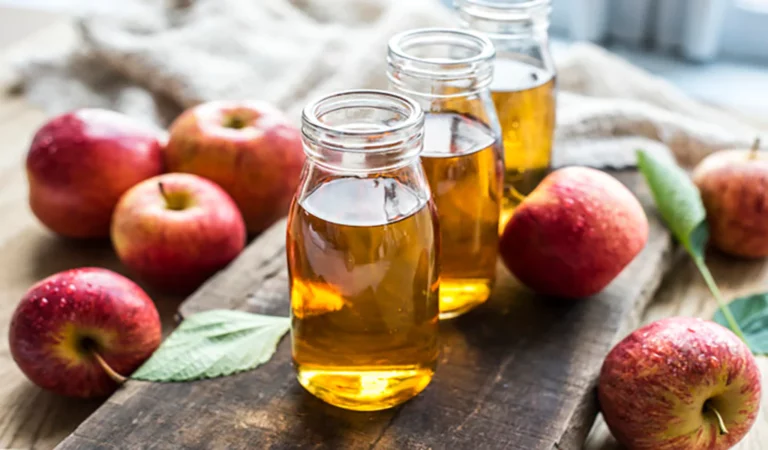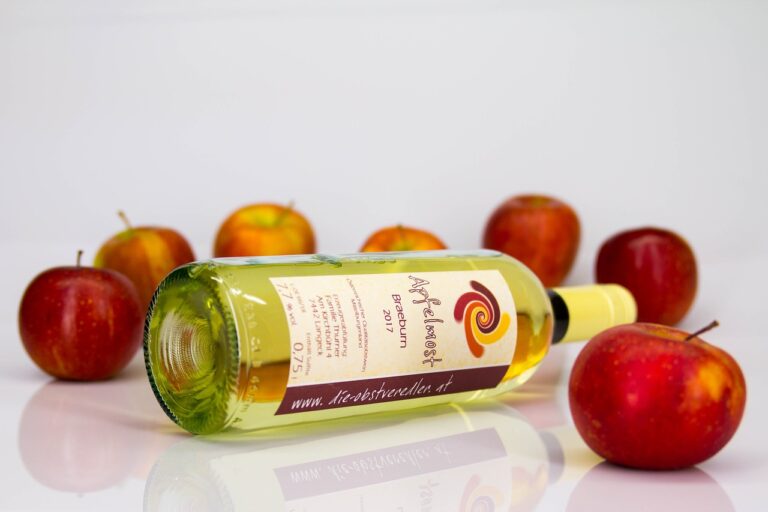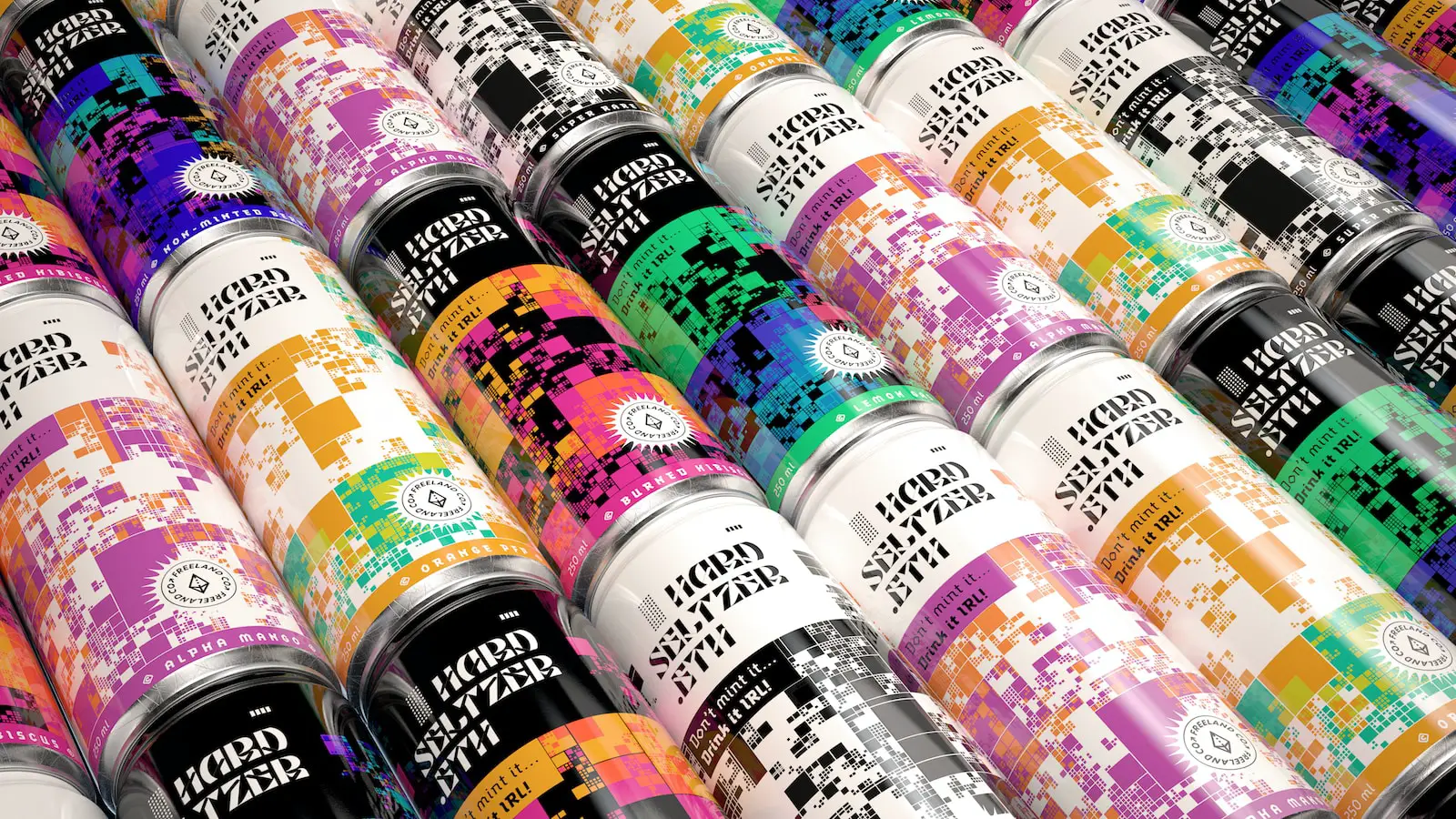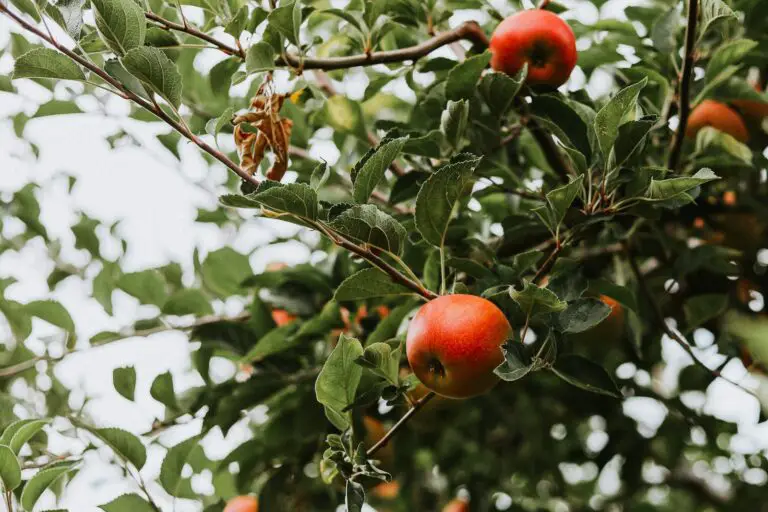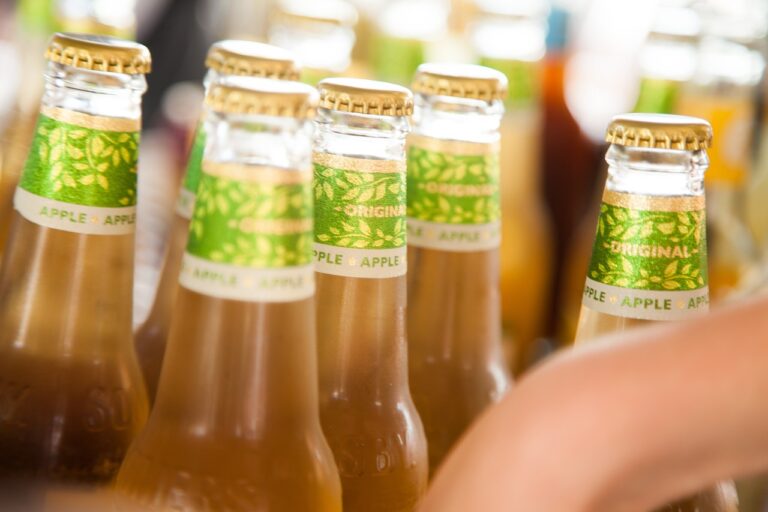Have you ever had that nagging feeling of doubt when it comes to cider? You know, the one that makes you wonder if it’s actually strong enough to get you drunk? We get it.
Cider can often be overlooked due to its sweet, fruity flavor and smooth finish. But just because it’s delicious doesn’t mean it isn’t potent.
It’s a legitimate—and important—question to ask: how much cider would I need to consume to actually feel the effects?
Well, we know a thing or two about cider, so we decided to put our heads together and do some research.
But, before finding out whether cider can actually get you drunk or not, let’s look into what it is made of.
What Is Cider Made Of?
Cider, a popular and refreshing alcoholic beverage, is primarily made from fermented apple juice.
The process begins with selecting and pressing ripe apples to extract their juice, which is then combined with yeast to initiate fermentation.
As the yeast consumes the natural sugars in the apple juice, it produces alcohol and carbon dioxide, transforming the juice into a deliciously crisp and bubbly beverage.
While apple cider is the most common variety, other fruit juices, such as pear or peach, can also be used to create distinct and flavorful ciders.
Additionally, some cider makers may choose to include adjunct ingredients like spices, herbs, or additional fruit flavors to further enhance the cider’s taste and complexity.
Alcohol Content in Cider
Understanding the alcohol concentration of ciders is necessary to determine if drinking it could make you drunk.
The alcohol content in cider varies depending on factors such as the fermentation process, the sugar content in the fruit juice, and the cider maker’s preferences.
Typically, ciders have an alcohol by volume (ABV) ranging from 5.5% to 8%, which places them within a similar range as most beers.
Some ciders, however, might have a lower or higher ABV, with certain artisanal or specialty ciders reaching up to 12% or more.
The alcohol content can affect the overall flavor and mouthfeel of the cider, with lower ABV ciders often being lighter and more refreshing.
On the other hand, higher ABV ciders may exhibit a richer, more robust flavor profile.
It is essential to be aware of the alcohol content in your chosen cider, as it allows you to enjoy the beverage responsibly and gauge its potential effects on your body.
Can Cider Make You Drunk
Cider, like any alcoholic beverage, has the potential to cause intoxication if consumed in excessive amounts.
The degree to which one becomes inebriated depends on several factors, including the cider’s alcohol content, the individual’s tolerance to alcohol, and the rate of consumption.
While ciders typically have an alcohol by volume (ABV) similar to that of most beers, ranging from 4% to 8%, it is important to remember that consuming multiple servings in a short period can lead to drunkenness.
As with any alcoholic beverage, it is crucial to consume cider responsibly, taking note of your personal limits and ensuring that you do not exceed them.
Moderation is key to enjoying the refreshing taste of cider without the unpleasant consequences of overindulgence.
Effects of Drinking Cider
Drinking cider, like any alcoholic beverage, can have various effects on the body and mind.
These effects can be both positive and negative, depending on factors like the quantity consumed and individual tolerance.
Here is a list of some potential effects of drinking cider:
Impaired judgment
Consuming too much cider can impair decision-making abilities, affecting one’s ability to make sound choices.
Dehydration
Alcohol acts as a diuretic, and drinking cider may lead to dehydration if not accompanied by adequate water intake.
Weight gain
Cider, like other alcoholic beverages, contains calories that can contribute to weight gain if consumed in excess.
Hangover
Overindulging in cider may result in a hangover, which includes symptoms such as headache, nausea, and fatigue.
Alcohol poisoning
Consuming large amounts of cider in a short period can lead to alcohol poisoning, a severe and potentially life-threatening condition.
Long-term health issues
Chronic excessive consumption of cider and other alcoholic beverages can lead to long-term health problems, such as liver damage, heart disease, and addiction.
Relaxation
Moderate consumption of cider may lead to relaxation, as alcohol has a depressant effect on the central nervous system.
Sociability
Drinking cider in social settings may help some individuals feel more at ease and open to conversation.
Slowed reaction time
Excessive alcohol consumption, including cider, can slow down reaction times, making activities like driving or operating machinery dangerous.
It is important to consume cider and other alcoholic beverages responsibly and in moderation to minimize the risk of negative effects on your health and well-being.
FAQs
How much cider does it take to get drunk?
The amount of cider required to become intoxicated varies based on factors like alcohol content, individual tolerance, body weight, and metabolism. It’s essential to drink responsibly and be aware of your personal limits.
Does cider get you drunk faster than beer or wine?
Cider typically has an alcohol by volume (ABV) similar to that of most beers, and lower than most wines. However, the speed at which one becomes drunk depends on factors like the rate of consumption, individual tolerance, and alcohol content.
Can you get drunk from non-alcoholic cider?
Non-alcoholic ciders contain very little to no alcohol, so consuming them is unlikely to cause intoxication.
Are some ciders more likely to cause a hangover than others?
Hangovers are often influenced by factors such as alcohol content, dehydration, and individual reactions to specific ingredients. Consuming large amounts of any alcoholic beverage, including cider, can result in a hangover.
How can I avoid getting drunk while drinking cider?
To minimize the risk of intoxication, consume cider slowly, alternate with non-alcoholic beverages (such as water), eat before and during consumption, and know your personal limits.
Are there any differences between the effects of drinking cider and other alcoholic beverages?
While the primary intoxicating ingredient in cider, beer, and wine is alcohol, the flavor profiles, ingredients, and alcohol content may vary.


